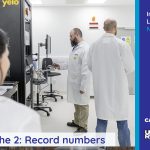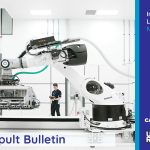Innovation Launchpad Network+ welcomes first round of academics for flagship Researcher in Residence scheme
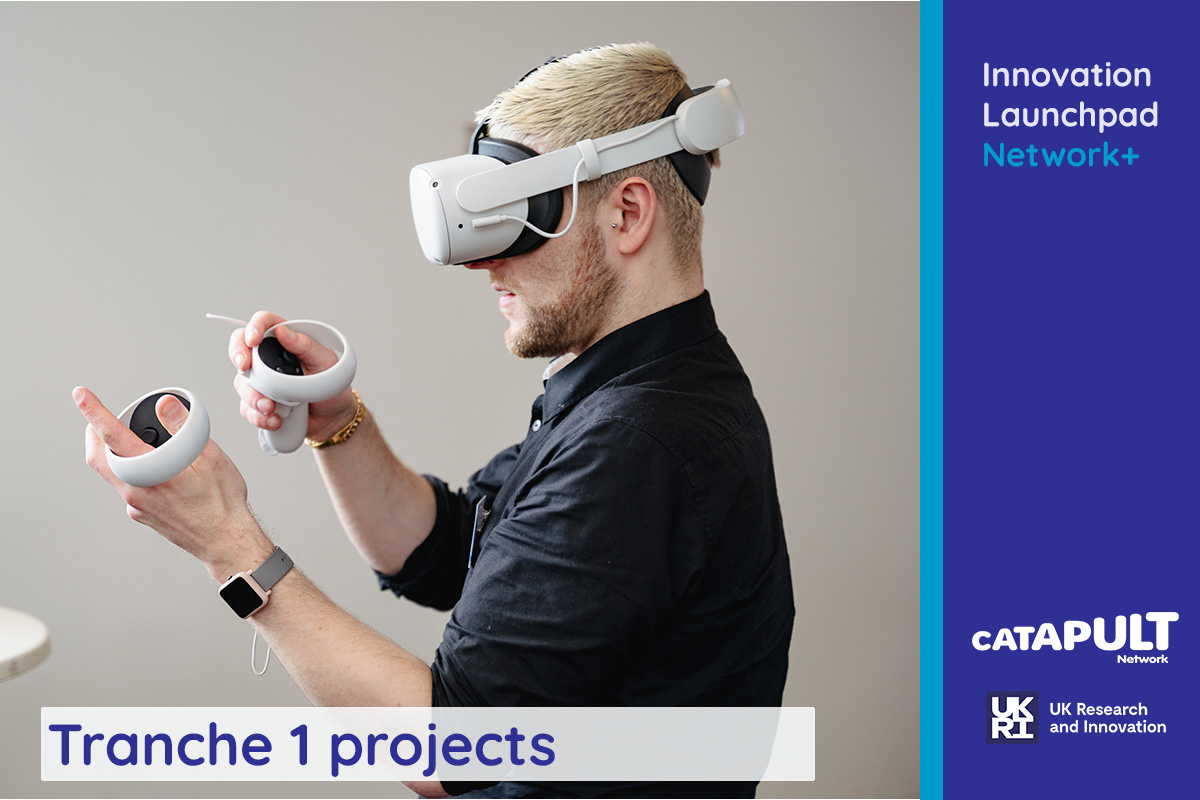
The first round of academics for the Innovation Launchpad Network’s Researcher in Residence scheme have been confirmed, with 31 world class projects set to make a huge impact to industry and to the UK’s strategic goals.
The first phase attracted more than 120 enquiries from 30+ different academic institutions across the UK, with all three key themes (Net Zero, Resilience, Healthcare and Wellbeing) and all 9 Catapults represented in a fascinating portfolio of applications.
Following an intensive reviewing process, the Innovation Launchpad can reveal its first round of research proposals below.
Director of the Innovation Launchpad Network+, Dr Pete Osborne, said: “We’re delighted to welcome our first round of Researchers in Residence and together with the EPSRC and the Catapult Network, we are excited to see the impact of each of these fantastic projects. The quality of the applications that we received in Tranche 1 was high and we encourage those who missed out this time, to apply again in future tranches.”
Each project is split into the key themes of the network below. More details of each project are available on the Innovation Launchpad Network+ tranche 1 page.
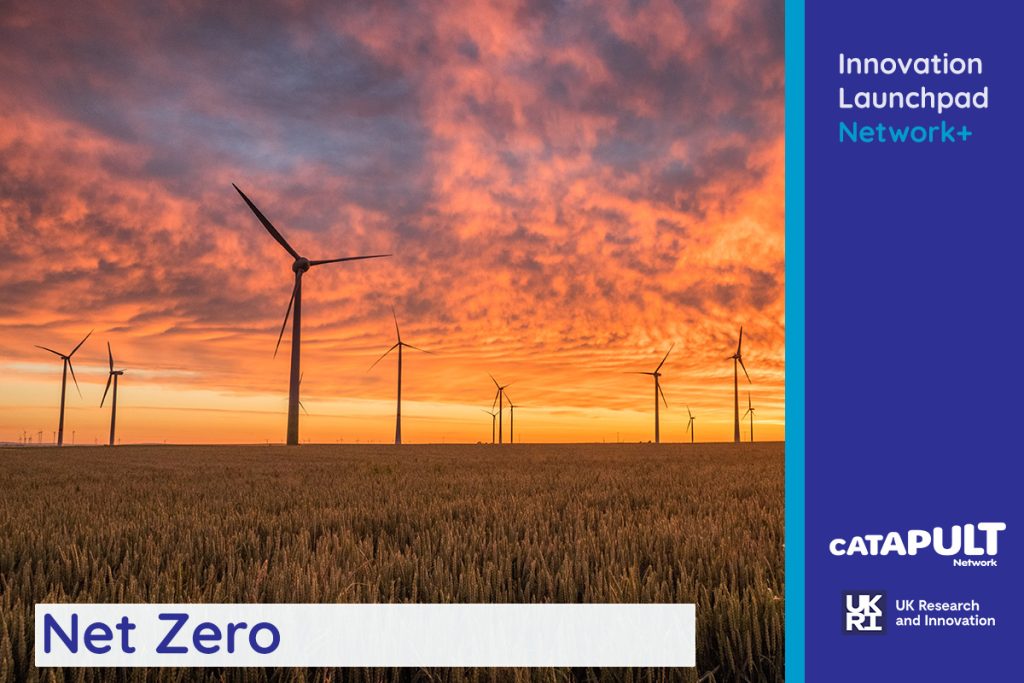
Net Zero
Laurence Stamford – University of Manchester / Cell & Gene Therapy Catapult – Ensuring life cycle sustainability in cell and gene therapy development
Alejandro Sanchez Monsalve – University of Bath / Cell & Gene Therapy Catapult – Sustainable chemical technologies for bioprocess and biomedical waste recycling to provide resilient, NetZero and circular solutions
Bo Hou – Cardiff University / Compound Semiconductor Applications Catapult– Solution-ProcEssed Compound semiconducToRs for high power capAcitors (SPECTRA)
Sheng Wang – Cardiff University / Compound Semiconductor Applications Catapult – Accurate Thermal Characterisation and Modelling of Gallium-Nitride (GaN) Transistors
Saeed Jahdi – University of Bristol / Compound Semiconductor Applications Catapult – Novel EV Drivetrain With High Temperature Silicon Carbide Devices: Bridging the Gap
Haopeng Wang – University of Nottingham / Connected Places Catapult – Enabling Construction Material Circularity in the Transport Infrastructure Sector
Ges Rosenberg – University of Bristol / Connected Places Catapult – Co-creating Station Innovations for Net Zero and Healthy, Inclusive Cities
Dawid Hanak – Teeside University / Connected Places Catapult – Identifying challenges and opportunities in decarbonising UK train stations
Mathieu Lucquiaud – University of Sheffield / Energy Systems Catapult – Future Net Zero Energy Systems with Carbon Capture and Storage
Ola Michalec – University of Bristol / Energy Systems Catapult – Energy & Democracy In Digital Twins
Paul Howard-Jones – University of Bristol / Energy Systems Catapult – Consumer learning journeys – an interdisciplinary framework to support Net Zero adoption
Mikhail Matveev – University of Nottingham / HVM-AMRC– Intelligent Control of Resin Transfer Moulding (RTM) process
Matthew Unthank – Northumbria at Newcastle University / HVM-CPI – Sustainable, recyclable and repairable high-performance plastics and composites for industrial applications.
Iman Mohagheghian – University of Surrey / HVM-NCC– Reclaiming Carbon Fibre for High-Value Multifunctional Materials/Structures
Siddharth Patwardhan – University of Sheffield / HVM-WMG – Accelerating commercialisation of a new scalable and sustainable manufacturing method for Si anodes for lithium ion batteries (LIBs)
Ben Bin Xu – Northumbria at Newcastle University / OREC– Advanced Materials and Mechanics for Offshore Renewable Energy (AM2ORE)
Maurizio Collu – Strathclyde University / OREC – Floating Offshore Wind Turbines: development of a multidisciplinary design, analysis, and optimisation framework
Edward Hart – Strathclyde University / OREC – Digitalisation enhanced wind turbine main bearing design and operational monitoring
Jonathan Hardwick – University of Exeter / OREC – Data centric design and numerical simulation for Tidal Stream Energy (D-TIDE)
Andrew Ross Wilson – Strathclyde University / Satellite Applications Catapult – Baselining the carbon footprint of the UK space sector
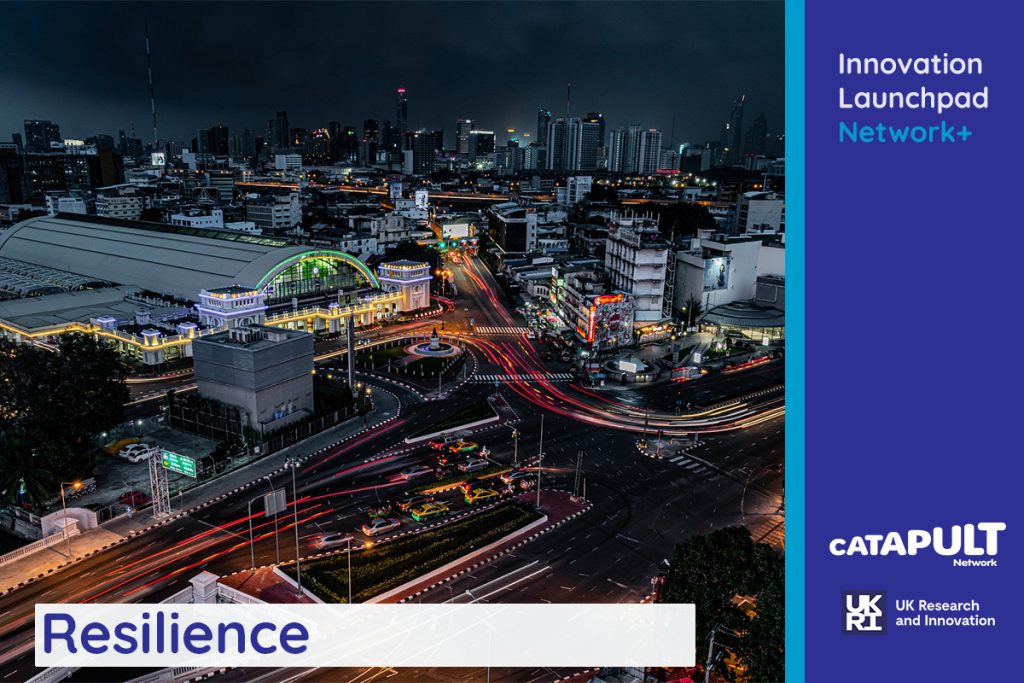
Resilience
Andrew Newton – Nottingham Trent University / Connected Places Catapult – Towards a national intelligence database for violence against women and girls on public transport
Mark Goudswaard – University of Bristol / Digital Catapult – The development, implementation and validation of the Physical-Digital Affordance Index for improving engineering decision making and enabling resilient design
Amir Bolouri – University of the West of England / HVM-AMRC – Digital Investment Metal Casting
Zekai Murat Kilic – University of Manchester / HVM-AMRC – Virtual prediction of vibrations and their effects on machining induced residual stresses
Santosh Bhattarai – University College London / Satellite Applications Catapult – Towards an on-orbit calibration system for better positioning accuracy in the next-generation of space surveillance and tracking systems
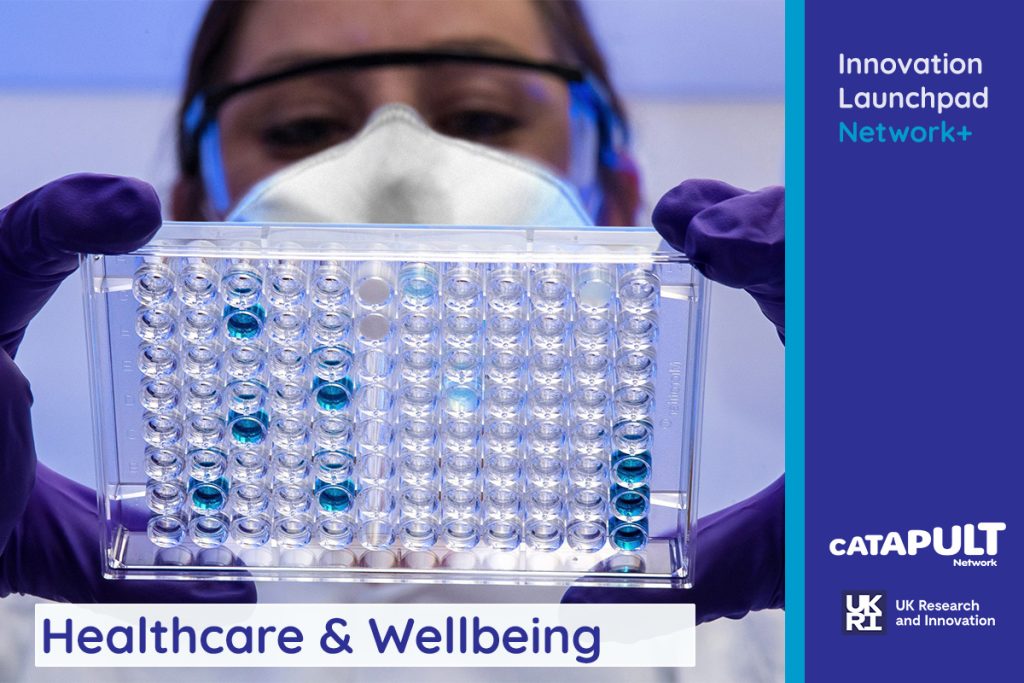
Healthcare and Wellbeing
Stephen Goldrick – University College London / Cell & Gene Therapy Catapult – Application of advanced data analytics and mathematical modelling to leverage PAT tools for adaptive manufacturing within cell and gene therapy processes
Michael Bryant – University of Leeds / HVM-AMRC – Streamlining PrEclinical testing of musculoskEletal Devices: converging in silico and experimental technique for accelerated, sustainable but safe medical device development. (SPEED)
Nazmul Karim – University of the West of England /HVM-CPI – Sustainable Electronic Textiles for Wearable Point-of-Care (PoC) Systems
Beatrice Melinek/Salome Alexandra De Sa Magalhaes – University College London / HVM-CPI – Technical developments towards commercialisation of a novel Cell-Free pDNA production platform
John Oyekan – University of Sheffield/York from Feb / HVM-CPI – Developing an intelligent digital framework to speed up lipid nanoparticle (LNP) drug delivery systems manufacture
Yvonne Perrie – University of Strathclyde / HVM-CPI – Optimising hit-to-lead ratio for high-throughput screening of Lipid Nanoparticles for the delivery of mRNA
Tranche 2 of the Researcher in Residence scheme is open now. The deadline for Expressions of Interest is on 15th June 2023, 2pm BST. Researchers are encouraged to contact the Catapult Network with their proposal before submitting an EOI. More information about the scheme and the Network’s wider activities can be found at innovationlaunchpad.ac.uk/researchers-in-residence.
Notes to Editors
The Innovation Launchpad Network+ is a national collaboration, led by the University of Sheffield along with the Universities of Leeds, Strathclyde, Warwick, Bristol and Exeter, and the Catapult Network. There are currently nine Catapults, each established by and working in partnership with Innovate UK. They support businesses across healthcare, energy, emerging technologies and manufacturing in transforming great ideas into valuable products and services. The network has been funded by the Engineering and Physical Sciences Research Council (EPSRC).
